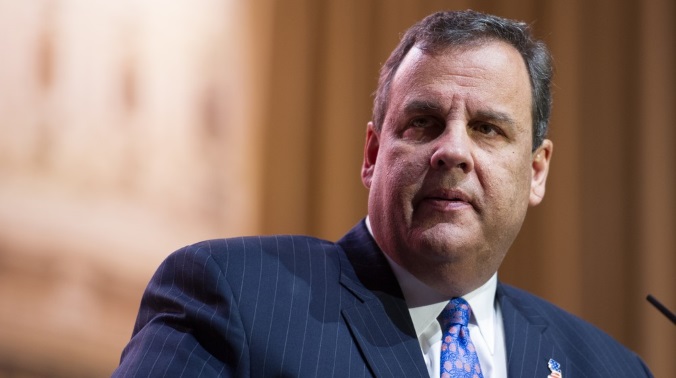The “opioid epidemic” continues to claim American lives at a rate of nearly 100 overdose deaths per day — just one sign of a crisis that the Trump White House has called a “public health emergency.” In response, the White House commission on opioids issued a long list of recommendations for combating the problem. Notably absent from that list was medical cannabis, even as a new study reveals that two out of three chronic pain patients using cannabis were able to stop taking prescription opioids altogether.
The US makes up only about 5 percent of the world’s population, but its citizens consume over 80 percent of the world supply of opioid medications – powerfully addictive painkillers prescribed for reasons such as surgery, injury, illness and many chronic conditions. But these drugs can become addictive in as little as two weeks, and when they become harder to get, users often turn to their sketchy street cousin: heroin.
White House Opioid Commission Recommendations
The epidemic strains the resources of hospitals, clinics, and the courts — and those concerns drove the recommendations made by the White House commission to the president. That report included provisions for expanding drug courts to all 93 federal jurisdictions, training doctors on safe prescribing of opioids, mandating reporting databases to reduce incidences of doctor shopping and multiple prescriptions, and expanding medication treatments using drugs such as methadone and naltrexone.
But these recommendations focus on managing the behavior of opioid prescribing doctors and punishing or treating opiate users. In doing so, they ignore the problem at the center of the crisis: finding a safer and equally (or more) effective alternative for managing pain. Medical cannabis can be that alternative — and it’s already available and supported by a growing number of authoritative studies.
The latest of these studies was recently conducted by Aclara Research in partnership with a group of pharmacists active in the cannabis community. The Aclara study surveyed a group of 400 patients and 500 pharmacists on their views about medical marijuana and opioids. The full review is expected to be published in January 2018, but Aclara’s preliminary findings, released in late October 2017, add still more evidence to the growing body of research that shows cannabis can not only help reduce opioid use but can entirely replace it.
Results of the New Study
In Aclara’s study, 67 percent of patients surveyed said that they were able to stop using opioids altogether with access to medical cannabis – and another 29 percent were able to reduce their use of opioids with the help of cannabis. And among all the respondents, 30 percent were able to quit not only opiates but all other prescription drugs as well.
Along with the overwhelming evidence that cannabis can be as effective as opioids for pain control, Aclara’s study also highlighted the perspective of an often-ignored member of the healthcare team: the pharmacist. Although most efforts to curb the opioid epidemic focus on the role of doctors, pharmacists are on the front lines of dispensing medications and counseling patients.
In the Aclara study, 87 percent of pharmacists surveyed believed that medical cannabis should be legal – and 69 percent thought that pharmacists should be able to dispense it directly. But only 15 percent of patients said that they had ever spoken to a pharmacist about cannabis.
Roughly 40 percent of patients surveyed said they got their information about medical cannabis from social media or the Internet, not from a knowledgeable health professional. These numbers suggest that pharmacists would like to be able to counsel patients about medical cannabis, and patients would like to be able to ask them about it. But existing laws make that difficult, if not impossible.
Pain Patients Overwhelmingly Prefer Cannabis to Opioids
Aclara’s new research joins a long and growing list of studies showing the effectiveness of cannabis as a replacement for opioids. A 2017 study conducted by the University of California, Berkeley, using the patient database of HelloMd, an online cannabis community, found that of 3,000 survey respondents, 92 percent preferred cannabis to opioids for managing pain, and 81 percent found cannabis more effective than opioids when used alone.
These and other studies add weight to the increasing demands for more federal funding to conduct cannabis research. In his recommendation to the President, New Jersey Governor Chris Christie (R), the commission’s head, lamented the lack of “sophisticated data” on issues such as the dosage and strength of cannabis for pain management and the potential for addiction. But the government has resisted calls to reschedule marijuana from the DEA’s highly restrictive Schedule I of the Controlled Substances Act, which makes it difficult to conduct research with federal backing.
In an effort to provide the kind of definitive data needed to support wider access to cannabis, the National Institutes of Health recently funded a new long-term study on cannabis and opioids. That study, which will follow the use of cannabis and opioids among people diagnosed with HIV/AIDS, has been hailed as a landmark in federally funded research on marijuana. To date, the overall lack of rigorous federal studies bolsters the government’s contention that research doesn’t support claims about the medical benefits of cannabis.
Academic and private sector studies like Aclara’s show that, for the majority of users, cannabis is as effective as opioids. But in the current political climate, a government opposed to marijuana continues to focus on solutions for the opioid “epidemic” that ignore the obvious way out — medical cannabis.

